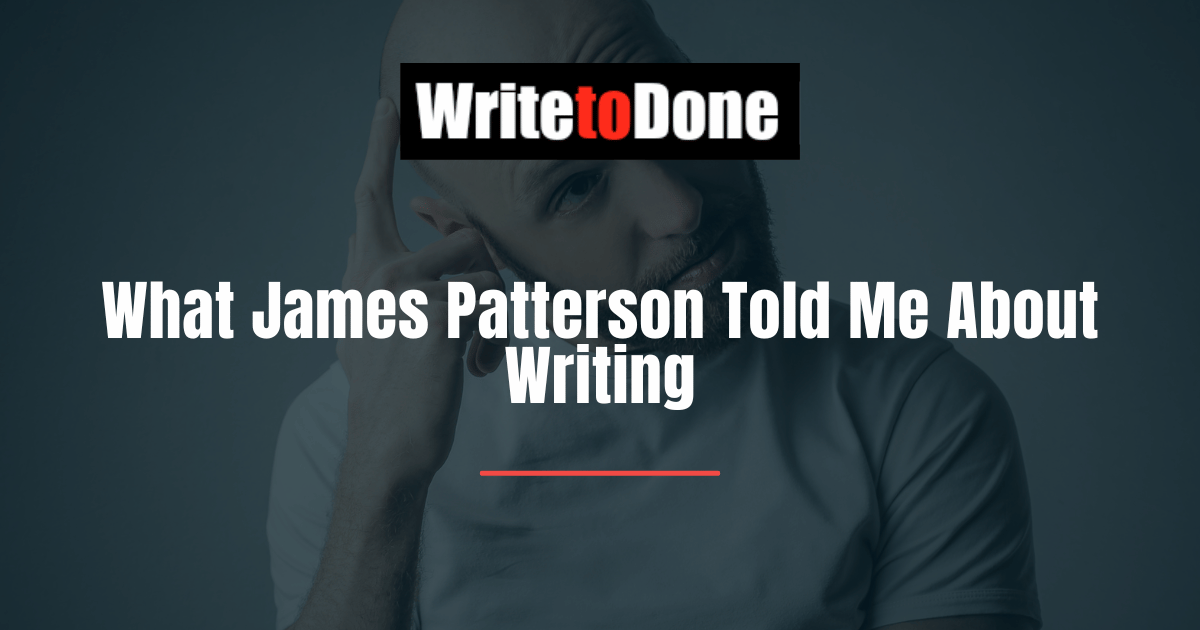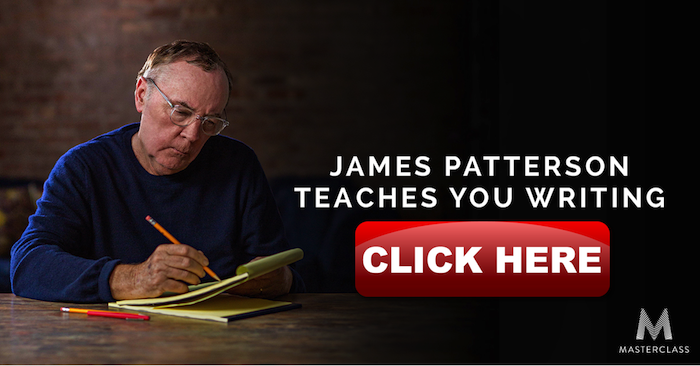“Would you like to have lunch with James Patterson?”
I would.
So would many of you, I guess.
I’ve been a James Patterson fan for quite some time.
So when I had the opportunity to have lunch with the world’s bestselling author in Sydney, Australia in May this year, I immediately finalized my travel plans.
The lunch was organized by Dymocks Bookstore as part of their Literary Events at the luxury 5-star Shangri-La Hotel in the Sydney Rocks area, and was attended by 240 James Patterson fans.
Mr. Patterson was here to promote his latest venture into children’s books; a passion of his to get young people back into reading. As part of his visit he would also donate books worth $100,000 to local school libraries.
On the day, I flew in early from Brisbane, and checked into my hotel to relax and prepare for the event. I wanted to ensure I got the most from the lunch.
And I wanted to ask James Patterson a question.
At the venue, I was shown to my table, perfectly positioned in the front row right in front of the stage. I couldn’t have been happier.
Introductions were made—the 9 other guests at my table included the editor of a leading magazine, and an author of 6 novels.
Through the hour that lunch was served, James Patterson sat on stage being interviewed by a leading Australian radio personality.
Here’s what I gleaned from their conversation:
- It’s never too late to start writing. Just start!
- Work hard—there is no shortcut. He might have up to 50 projects on the go, 13-15 of them being in active mode. You need to put in the hours to complete this workload.
- Read, read, read. Reading helps improve your life and your writing. Encourage young children to read.
- Authors can ‘outdo’ actors. He told a funny story about having dinner with Clint Eastwood and a movie director in an Italian restaurant in Washington one night. A lady came up to their table and asked him for his autograph. Clint Eastwood commented that he “really needed a hit movie quick” after being overlooked by the woman.
The conversation was light-hearted, fun and entertaining. James Patterson came across as both down-to-earth and engaging.
Then it was Question time.
Of the 6 questions taken, I got the first one in.
“As a newbie author, how can I get my books seen so that I can sell more books? What marketing tips can you give me?”
Here’s what James Patterson told me:
- Don’t worry about marketing. Leave that up to your publisher to figure out.
- Learn how to plot and outline better. James Patterson told the audience that he writes outlines of around 80-90 pages and submits them to his co-author who then fleshes out his work. The co-author submits their progress work every week, which James Patterson edits and resubmits. This process continues until the whole book is complete.
- Have a hook at the end of each chapter. It keeps the reader turning the page.
- Write more. The more you write, the better you can potentially become. The more books you have out in the marketplace, the better the opportunity to make money.
Boom! Short and succinct.
Now while I did agree with the last two points, I was skeptical about ‘not worrying about marketing.’
As a newbie author trying to sell since February 2015, with no marketing muscle behind me, I was having very little sales success.
I also found myself being drawn into the marketing hype bombarding my email inbox on how ‘a particular software or a book promotion idea’ would solve all my sales dilemmas and catapult me to the top of the Amazon bestseller lists.
But I was willing to put his ideas into action.
After lunch, I thanked him for his advice, grabbed a signed copy of Truth or Die, and left.
When I headed home the next day, I was ready to act on his words of wisdom.
To help improve my plotting and outlining skills, I bought James Patterson’s Masterclass on Writing.
The course consists of 22 videos, pdfs and an outline of his book Honeymoon. The videos are entertaining, but the real juice is in the PDFs, work assignments, and the outline. You can even submit your work for critiquing; if you are game.
At $90 it’s a very worthwhile investment in your writing career. Grab it.
But the best advice I got from James Patterson was simply to work hard and write more.
After 5 months as a mystery, thriller and suspense author, my output has dramatically increased, with 4 novellas hitting the Top 10 in their respective categories, 2 of which hit #1 in both the US and UK.
Thanks, James Patterson, for your great insight. I’m now chasing you!
What part of his advice resonates most strongly with you? Share in the comments and on social media, please.
About the author:
C T Mitchell is wary of anybody carrying a Honma golf club, an AK47, or even a strawberry tart—all have been used as murder weapons in his books. He is the bestselling author of thrillers and suspense novels. Grab a FREE copy of his book REJECTION at www.CTMitchell.com



















